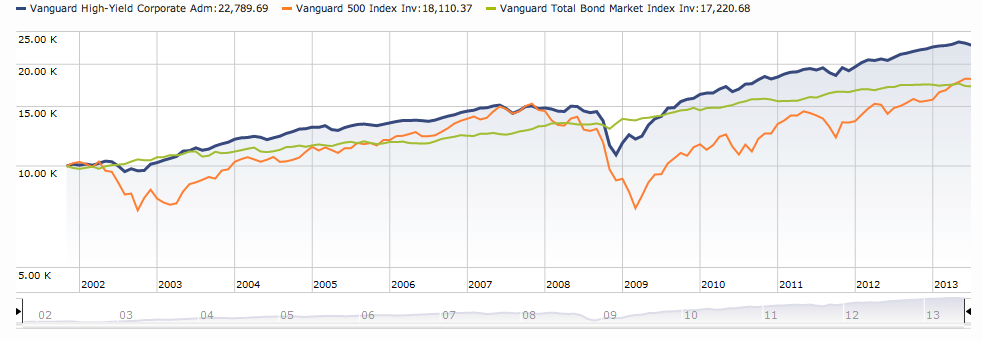LOL!
Give me a museum and I'll fill it. (Picasso) Give me a forum ...
- Joined
- Jun 25, 2005
- Messages
- 10,252
High yield bond funds are equivalent to a mix of a stock fund plus a high quality bond fund. Or are they?
How to Make Your Own High-Yield Corporate Bond Fund - Blog
I seem to recall lots of folks around here have/like high-yield bond funds. I do not own such a fund and really have no intention of owning one.
How to Make Your Own High-Yield Corporate Bond Fund - Blog
I seem to recall lots of folks around here have/like high-yield bond funds. I do not own such a fund and really have no intention of owning one.

